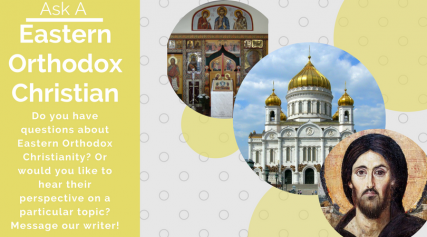What would you like to know about the Eastern Orthodox Christian faith? Submit your question.
What are some Eastern Orthodox conflicts?

Matthew 17:19-21: “Then the disciples came to Jesus privately and said, ‘Why could we not cast it out?’ He said to them, ‘Because of your little faith. For truly I say to you, if you have faith as a grain of mustard seed, you will say to this mountain, ‘Move hence to yonder place,’ and it will move, and nothing will be impossible to you. But this kind never comes out except by prayer and fasting.”
OK, one might say that we somewhat understand and perhaps experienced the power of prayer individually or as a group. One could say that prayer is a request for help or need, but for now, let’s focus on what is this thing called fasting? Why did the God of all creation in His humanity fast 40 days in the wilderness while encountering the temptations of Satan the ruler this earthly kingdom?
Fasting is the voluntary self-denial to strengthen our will to overcome the temptations of the world and the flesh. If faith is obedience out of love to follow the commandments of God, then fasting is the reinforcement of that faith. Fasting enables us to gain control of our lives and is often practiced as in abstinence from foods and destructive passions.
Luke 9:23: “Then He said to them all, ‘If anyone desires to come after Me, let him deny himself, and take up his cross daily, and follow Me.'”
Real freedom and self-control come when you can say “no” to your deepest hunger rather than acquiescing to these intoxicating unhealthy desires. The short list of unhealthy desires (passions of the flesh) is anger, lust, sloth, pride, greed, gluttony, envy, etc.
Eastern Orthodox Christian practices and beliefs directly conflict with our secular culture. We make an attempt to fulfill the prescribed 180 days of fasting in our spiritual calendar centered on food, but not limited to food. We fast from eggs, meat, and dairy products and sometimes stricter fasting is required to fast also from fish, wine, and olive oil.
Fasting is almost like a temporary self-induced suffering or sacrifice in the denial of the immediate destructive desires and pleasures for a greater future longer-lasting reward and eternal benefit. Saint Paul says (Rom 12:2) “Be transformed by the renewal of your nous (heart)” to struggle to become more like Him through denial of the unhealthy worldly pleasures, creating an open and receptive heart to receive all that He wants to give us.
Note: Science confirms what the Christian fathers have promoted that fasting is beneficial for the body, mind, and soul.






